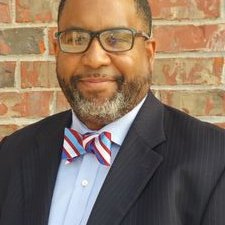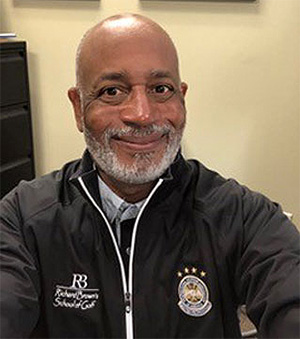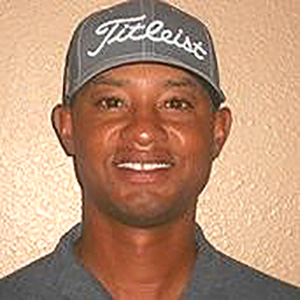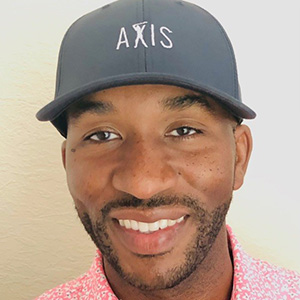
Golf is a difficult game. At some point every one of us has recognized that in order to get better it takes instruction. Junior players in most cases today have a club placed in their hand by an instructor. The standard bearers in the industry to instruct and grow the game are PGA Professionals with a membership of nearly 29,000. Within this membership, the number of African American PGA Professionals is estimated to be in the range of 200.
One cannot tell the story of Golf Professionals without mentioning John Matthew Shippen, Jr. The son of a Presbyterian Minister who was a former slave Shippen learned the game and became an assistant professional at the historic Shinnecock Hills Golf Club in Southampton, New York. John Shippen went on to participate in the US Open multiple times and his highest finish was fifth place.
A career as a golf professional primarily at Shady Rest Golf and Country Club in New Jersey is where Mr. Shippen established a legacy, yet the sentiment of the times did not allow John Shippen from becoming a recognized PGA Professional before his retirement in 1964. The PGA of America did posthumously honor John Shippen with membership in 2009 along with Ted Rhodes and Bill Spiller two other prominent African American golf professionals who were denied membership to the PGA of America.
The game of golf is at a moment where diversity and inclusion are as equally important as birdies and bogeys, yet the numbers of African American PGA Professionals and LPGA Professionals do not reflect the rich history African Americans have always brought to the game or the representation of a culture that seeks access to the game today. I have been fortunate to spend time with several African American golf professionals, and it’s important to introduce them to the golfing public because they ARE taking the game to the next level.
Richard Brown III
Richard Brown III has been a PGA Teaching Professional since 1986. Raised in Oakland, CA Richard learned at an early age not only the game of golf but also the barriers that African American professionals had to face from multiple fronts. Richard’s game was good enough to earn him a scholarship to play golf at Grambling University, yet his tenure at Grambling was also enlightening because Richard realized that African Americans who played golf were viewed as ‘different’.
Golf as a primary sport over the three major US sports in the African American community has had a difficult time being accepted even though contributions from African Americans in the history of the game are significant. After graduation from college, Richard sought the same career path as numerous collegiate golfers to become a professional, however, becoming a teaching professional was paramount to Richard Brown III to tear down every barrier he learned about earlier in his life.
Richard Brown III in 2019 became the first African American to achieve the status of PGA Master Teaching Professional, and currently maintains the role of Education Faculty Member at the PGA of America’s new headquarters in Texas. It takes no time to recognize that Richard Brown III is passionate about the game, and in his current role as an instructor to PGA Teaching Professionals how to teach the game of golf experience, technique, knowledge, and passion are the critical elements being instilled in the next generation of teaching professionals.
The current initiatives to grow the game of golf are necessary, however, Richard Brown III also points to the need of communities of color in being introduced to the game along with paying close attention to the goals to lessen the disparity gap affecting communities of color in providing access and development for junior players. The game of golf must be taken to communities of color and taught in a manner that promotes the value that the game of golf offers.
The value that Richard professes is based in the relationship building done via playing golf, along with the game of golf being an asset as the numbers of African Americans who are now active golfers are higher than they have ever been and the game offers opportunities to bring individuals together for significant opportunities. Increased focus on the mental side of the game is also critical. Golfers are different athletes.
The individual nature of the game requires a mental framework to succeed that is different, and Richard Brown III recognizes that players need to build that framework with consequence-based training in practice. These building blocks of bringing junior golfers to the game AND developing them are the foundation that Richard Brown III is using to change the game for the future.
Tirrel Baymon
Tirrel Baymon has been a PGA Teaching Professional for over 15 years after coming to the game as a junior golfer. As a youth Tirrel was identified by Bill Dickey as an up-and-coming player which set him on the path to playing collegiate golf. A connection to the legendary Bill Dickey wasn’t his only firsthand experience with a legend in the game as Tirrell attended a clinic put on by Tiger Woods after his first Masters victory. Seeing the level of greatness in Tiger, but also the energy that Tiger brought to the golf community made an impact that Tirrel references to this day.
The events Tirrel experienced as a youth had an impact on his golf story, instilled the desire to teach the game of golf. After a collegiate career at Florida A&M Tirrel worked with the First Tee program building his skills and introducing juniors to the game. Today Tirrel is the Director of Instruction at Cypresswood Golf Club in Houston Texas, having been a golf professional at the club since 2010. The impact that Tirrel is making on the game by introducing, developing and coaching junior golfers is immense as he understands and makes golfers and parents know that chasing tournaments is not what junior golf is about.
The process should be developing skills and testing the player in events that meet the level a player can be successful competing in. The support of Cypresswood Golf Club is also a factor as the facility welcomes the introduction to the game package that Tirrel offers through Groupon consisting of a five-week lesson package at $59 that is designed to build a foundation for new players by determining if a junior ‘likes’ the game of golf.
To start new juniors with a basic introduction is not new, however, Tirrel Baymon is bringing juniors to the game, and coaching golfers and their families on how to handle the competitive junior golf circuit to ensure that players can develop their games at the pace that fits them.
Robyne James
Robyne James is unique. Unique as in returning to the game to become the best player that she could be after a stint in the corporate world and experiencing lay-off. Robyne worked for four years and became a player that could hold her own against anyone that would tee it up with her as a (2) handicap. The experience of being a woman with game in a sport dominated by men resonated with Robyne so much that she made the decision to become an LPGA Class A Teaching Professional.
Robyne’s unique understanding of how the game appears to women and young girls is the basis for how she brings people to the game. The golf world is difficult to navigate before one even considers hitting a draw or a fade or reading the proper break on a 6-footer downhill. Entering a clubhouse for the first time through large doors that lead to dining rooms, or the players’ lounge is intimidating when all a young girl wants to do is find out where to check in for a tee time or even where the range is located.
Today as a Senior Staff Instructor at the Raspberry Golf Academy in Leesburg, VA Robyne works with junior golfers and women who are new to the game to ensure that there is a place for them when they get to the course. Always unique Robyne’s new students are normally told the direction of the driving range, and “To look for the lady with the pink hair,” providing a level of comfort and ease in finding the person that guides them on their golf journey.
Robyne is also making a statement in the game as the developer of the InfuseNClip, a scented hat clip that wards off flying insects while on the course, and she is the founder of Birdie Everything Ball Markers that provide a personalized ball marker for every player to become unique. Robyne James is a teaching professional that believes that the introduction to golf will provide girls and women the opportunity to enjoy a sport for a lifetime while making relationships that are a staple of the game.
Shaun McEwen
Shaun McEwen embarked on a career as a PGA Teaching professional after completing a collegiate career at Florida A&M University. Teaching now for over 13 years McEwen has created a following by building successful junior golfers working at the Axis Golf Academy on the grounds of Blackhorse Golf Club in Cypress, Texas.
Working at a full-service facility that provides club fitting, lessons, and player development allows Shaun to be a specialized teaching professional, however, the passion for the game he exhibits lets every player know they have someone who can get the best out of them.
Shaun recognizes that today junior golf is more diverse than it was just a few years ago, yet with all the new equipment, training, and teaching golf is still an expensive game. Players of all backgrounds need access, and the sport of golf must keep working to find a balance between allowing access and the operation of golf facilities. One of the aspects that Shaun believes needs attention is that junior golfers of color need to see faces that look like them and that are involved in the game as players AND in the industries associated with golf.
There have always been discussions about the opportunities that the business of golf offers and those roles need to be visible to the next generation. As a former collegiate golfer, Shaun also coaches his junior golfers on how to manage the process of competing to attain scholarships, while working towards creating connections for players to college coaches who may need additional development time to become the type of competitive players for the next level. Talented golfers from underserved communities need opportunities to sharpen their games in some cases as intramural or practice players to compete at the college level because the process just takes a bit more time. The effort that Shaun McEwen incorporates into his role as a PGA teaching professional is focused on taking the game to the next level.





